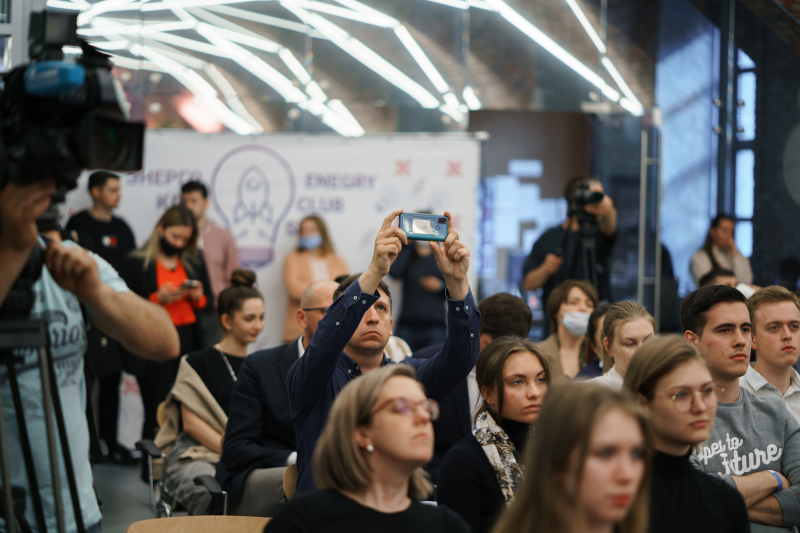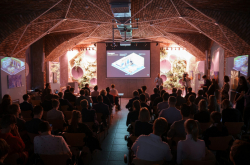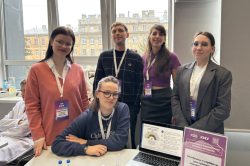Energy Club ITMO is one of the five university energy clubs established with the support of Gazprom Neft. Although similar partnerships also exist at Peter the Great St. Petersburg Polytechnic University (SPbPU), St. Petersburg State University of Aerospace Instrumentation (SUAI), St. Petersburg State Institute of Technology, and St. Petersburg State Marine Technical University, the head of Energy Club ITMO Alexandra Klebleeva believes that the club has managed to become an attractive platform for students not only from ITMO, but other universities, too.
“Our goal is to establish simple and efficient collaboration between industry and academia. We strive to ensure that our students have close ties with companies. Since the club’s launch, we’ve managed to build our target audience among students from ITMO and, interestingly enough, other universities, too. Although we now actively partner with Gazprom Neft, we plan to collaborate with other industry partners, as well. This way, we’ll be able to offer even more opportunities for our students,” says Alexandra Klebleeva.
Every year, the organizers of Energy Club ITMO hold a series of events meant to promote technological entrepreneurship, among which are various lectures about the energy sector, case competitions, the international hackathon ITMO Energy CUP, the Generator pitch battle, and the startup competition EnergyHUB. By taking part in these events, students can meet experts and business representatives, as well as expand their horizons. What’s more, they may also receive an offer to intern or even work full-time at one of the industry’s top companies. The club team also regularly updates students about current internship opportunities on their VK page. As noted by Alexandra Klebleeva, the doors of the club are open to all students and the organizers are always happy to help those who can’t find a project to their liking or want to know more about the club.
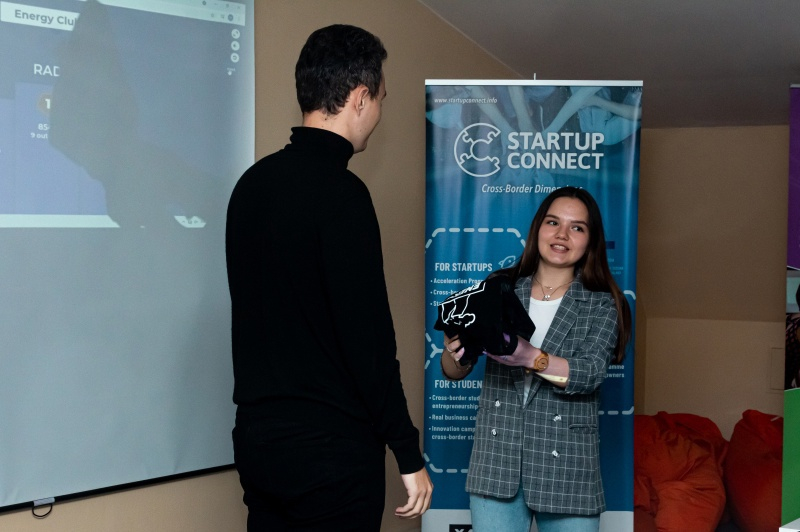
Alexandra Klebleeva. Photo courtesy of the subject
How to pitch an idea and gain support
Students who have ideas to share can do so at EnergyHUB, a startup competition organized by a community of St. Petersburg-based university energy clubs, Gazprom Neft, and EnergoTechnoHub. The contest is open to all Bachelor’s, Master’s, and PhD students, as well as teachers, from all over the country who want to pitch their projects, be it an idea or a market-ready product. This is a great way for students and teachers not only to demonstrate their achievements but also meet industry experts and get support from company leaders. The contest’s grand prize is one million rubles. This year, applications are open till April 21.
“We want our students to be actively engaged in today’s energy sector by launching their startups, starting their careers at energy companies, pitching their ideas, and helping to upgrade the fuel and energy complex. Our club is an excellent platform where they can find their potential customers, funding, or mentors. Here, they can also receive an internship or job offer from major companies,” notes Kseniya Oparovskaya, the head of direction, Department of Technological Partnerships and Import Substitution at Gazprom Neft and a curator of Energy Club ITMO.
Internships
The club also offers students an opportunity to intern at Gazprom Neft. The company recruits specialists with various competencies throughout the entire year.
“We mainly recruit Master’s and third- and fourth-year Bachelor’s students because interns are required to work at least 20 hours per week. There are no special skills that every employer is looking for, but I’m sure that keeping an open mind and being confident in yourself can help young specialists to not only get an internship but also grow as a professional,” shares Vladlena Komova, an internship specialist at Gazprom Neft.
To those who are looking for an internship, the expert suggests first deciding on what they’d like to do at the company. The next step is to create a CV that will feature the applicant’s most attractive skills and a list of events and projects they took part in. Students can apply for an internship via an HR specialist at a career day, the company’s website, or any job search engine. After that, they will be invited for an interview where they will have the chance to talk about their achievements and take a test task or an assessment, depending on the vacancy they’re aiming for.
One of the club’s participants who landed such an interview is Olga Budueva, a fourth-year Bachelor’s student at ITMO’s Faculty of Technological Management and Innovations, who will join the Gazprom Neft’s financial department this May.
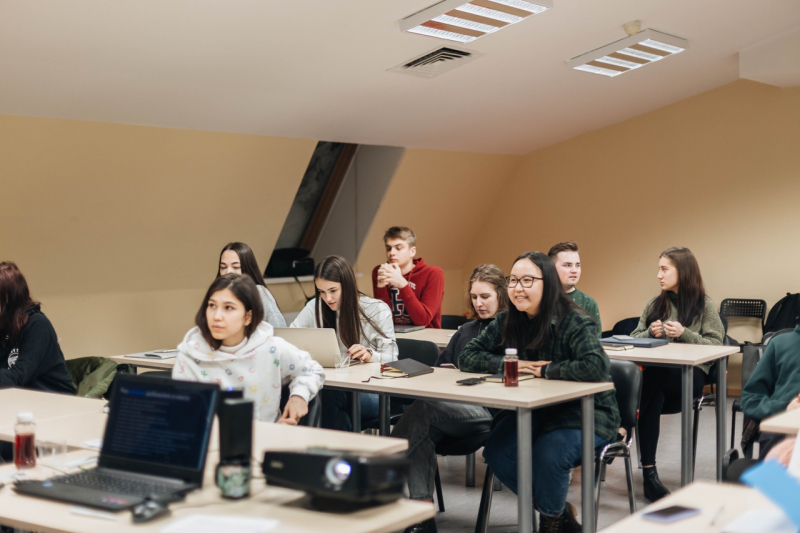
Olga Budueva (middle). Photo courtesy of the subject
“I study the economy of high-tech business and I’m currently writing a thesis in which I analyze the efficiency of an oil and gas company. It wasn’t that hard for me to get an internship, perhaps, because I’m an active member of Energy Club ITMO and regularly participate in the club’s various events, including Generator, EnergyHUB, and many others,” says Olga Budueva. “My CV got me this offer and now I’m about to work in my field for the first time. I believe this is a great way to see whether it’s something I’d like to do in the future or not.”
Once recruited, students are usually placed in junior jobs and gradually begin working on their department’s tasks or projects under the guidance of mentors. They can help collect and process data, analyze markets, test existing solutions, and so on. Some companies launch special projects staffed only by interns. In this case, their task is to come up with new solutions and present the results of their work.
Usually, interns spend their first month adapting to a new environment: they receive orientation training, meet their co-workers, and get to know more about the company and its activities. Once students are ready, they can complete tasks on their own or ask their mentors for advice if needed. According to Vladlena Komova, interns are welcome to show initiative and share their ideas and vision as soon as they arrive – and are fully expected to do so once they’ve adapted to the new working environment over the next few months.
